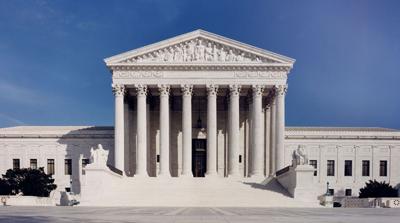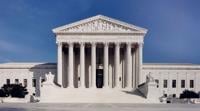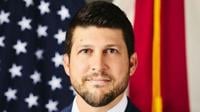
WASHINGTON - For a second time, Big Oil wants the nation's highest court to put a stop to lawsuits blaming it for climate change - this time on the heels of a South Carolina judge becoming the seventh to reject this litigation.
Suncor Energy and Exxon last week asked for review from the U.S. Supreme Court of a Colorado decision that allowed Boulder's climate case to move forward. SCOTUS had the same opportunity earlier to review a Hawaii ruling favorable to plaintiffs but did not take up the case.
Judges in South Carolina, Maryland, New Jersey, New York, Delaware and Pennsylvania have found the cases involve questions of international emissions standards better left to the federal government.
Dozens of lawsuits brought by government officials who hired private, contingency-fee lawyers remain pending. Colorado's and Hawaii's supreme courts refused to grant motions to dismiss cases there.
"There are few, if any, more consequential questions pending in the lower courts concerning the relationship between state and federal law," the petition says.
"The Colorado Supreme Court's decision was incorrect, and it provides this Court with the opportunity definitively to address whether the state-law claims asserted by dozens of states and municipalities can even proceed - and to do so before the energy industry is threatened with potentially enormous judgments.
"Boulder, Colorado, cannot make energy policy for the entire country."
Two justices of the Colorado Supreme Court voted to terminate Boulder's case but were outnumbered by the majority. Justice Carlos Samour wrote in May, "Boulder is not its own republic."
Justice Richard Gabriel, however, writing for the majority found the federal Clean Air Act didn't preempt state-law claims like public nuisance and consumer deception. The lawsuits were crafted to stay in state court and allege the public wouldn't have used as many fossil fuels as it did had it known about the dangers of climate change.
"Moreover, we perceive no manner in which, through its tort claims Boulder is seeking to implement foreign policy," Gabriel wrote. "Nor have defendants demonstrated how Boulder's claims intrude on any power over foreign policy expressly or implicitly reserved to the federal government."
Last week, South Carolina judge Roger Young Sr. dismissed Charleston's case, finding it an improper avenue to essentially regulate the international market.
And President Donald Trump has issued an executive order forbidding further climate litigation brought by cites, counties and states. Young took that under consideration then concluded that if Charleston's case could move forward, just about anyone could be sued.
Phil Goldberg, special counsel for the Manufacturers' Accountability Project, says no state has the authority to govern or impose liability on the worldwide energy market.
"That is why many states, along with the U.S. Department of Justice, have opposed this and similar lawsuits," he said. "They recognize that such litigation risks undermining their own efforts to address climate change and could impose significant and unwarranted costs on all American consumers for their essential energy needs.”
Bucks County, Pa., judge Stephen Corr noted that the county's complaint used the word "emissions" more than 100 times, while "deceptive" and "deception" were used only 39 times combined.
Judge Videtta Brown, in Baltimore's case, said the litigation goes beyond the limits of Maryland law, or whatever states other cases are filed in.
"This Court holds that the U.S. Constitution's federal structure does not allow the application of state court claims like those presented in the instant cases," Judge Steven Platt wrote in tossing Annapolis' case.
"The States such as Plaintiffs here... can participate in the efforts to limit emissions collaboratively, but not in the form of litigation... If states and municipalities [or] even private parties are dissatisfied with the federal rulemaking or the outcome of cases, they may seek federal court review."








